Learn how to take good care of your baby as a new mom!
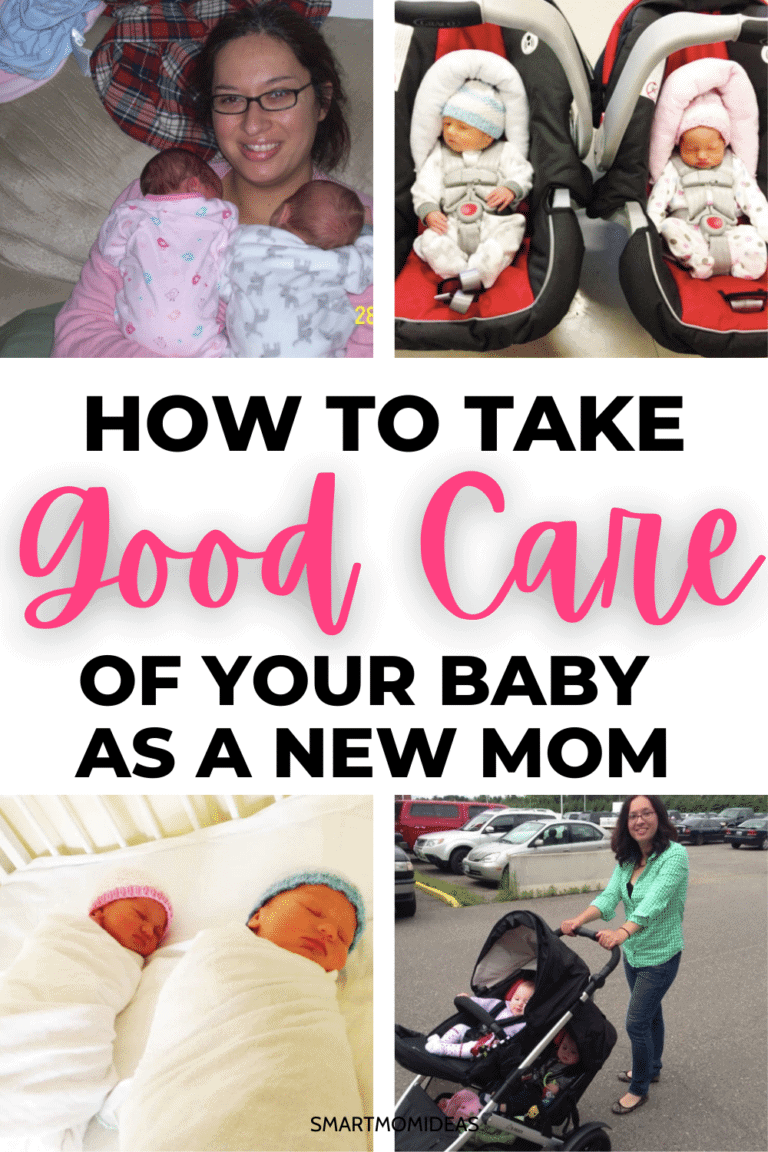
Being a brand new mom can be an exciting, confusing and terrifying time – and can have you asking yourself: “How do I take good care of my baby?”
Unfortunately, babies do not come with instructions.
I certainly learned that the hard way when I had my twins!
I was a first-time mom with two little ones to take care of. An instruction manual would have been nice.
But you know what? I figured it out!
With some mothering instinct and a dash of advice, I was able to take good care of both my babies.
While a large part of being a good mom is all about following your instincts and trusting your sense of love and care, there are plenty of good, solid tips out there that can help you out as a brand new mom.
But even these tips don’t constitute an instructional manual.
They are simply useful guidelines to help you out as you navigate motherhood.
So check out these ways to take good care of your baby as a brand new mom – keep them in the back of your head, jot some of them down or pin this article for later!
Oh, and congratulations! You’re going to do great!
At the Hospital
Taking care of your little one starts at the hospital right after birth!
From the moment you hold your precious baby, or babies in my case, in your arms you are already starting your journey of taking good care of them.
Unfortunately for me, after my C-section, I was whisked away because I was losing too much blood, so for the first 3 hours of my twins’ lives, I wasn’t there 🙁
Fortunately, my husband was and he was doing kangaroo care.
But, once I was reunited, I followed these steps while in the hospital and something you should consider doing too.
Feeding
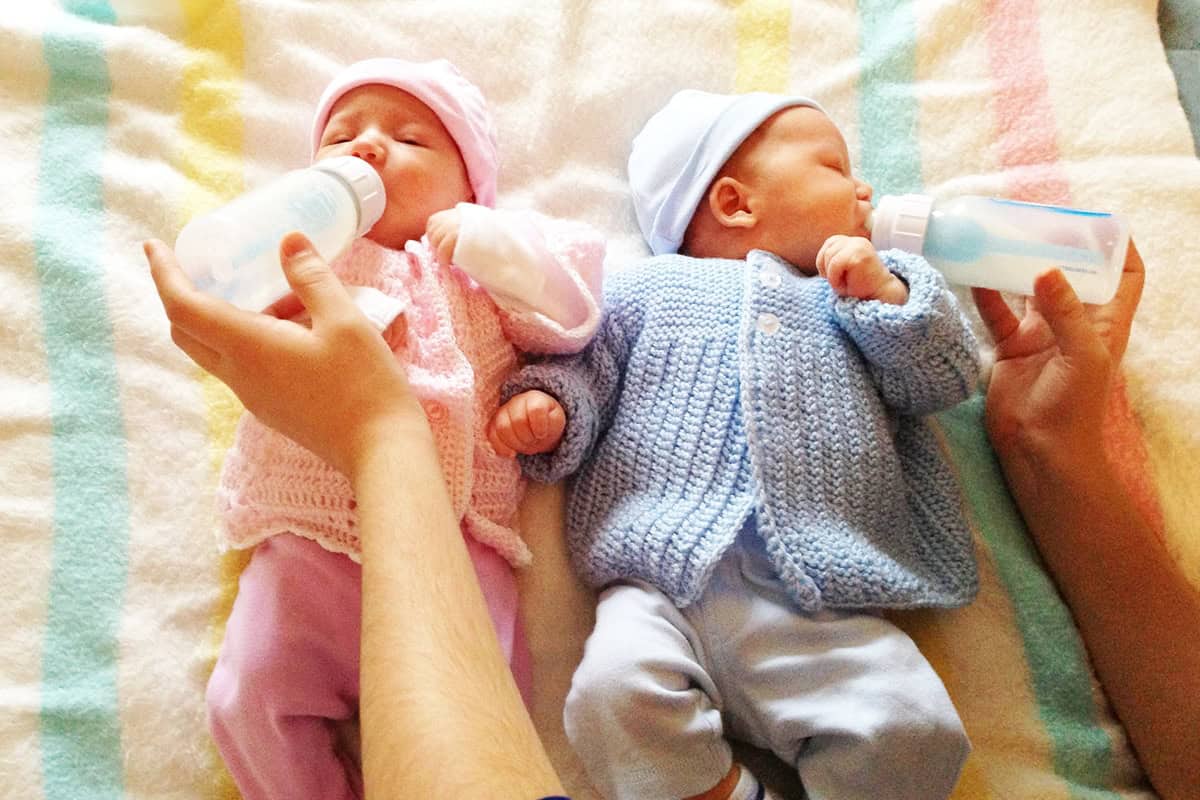
Before heading to the hospital, you probably had an idea of how you are going to feed your baby: breastfeeding or formula feeding.
However, breastfeeding is not always possible for brand new moms, which is okay, because the most important thing is that your little one has their nutritional and emotional needs met.
If you do plan on breastfeeding, you already have everything you need attached to your body!
Just keep in mind that things don’t always go to plan, so have some bottles and formula on standby at the hospital.
I was under the impression that I would only breastfeed my twins. Boy, was I wrong!
The first thing we did once we were able to bring our babies home for the first time was to go get bottles!
Visitors
While you are excited to introduce your new bundle of joy to friends and family, you may want to consider limiting the number of people that visit you in the hospital.
Apart from keeping germs away from your baby, you need to think about your physical and emotional state as well as your recovery.
During your recovery, mood swings are completely normal but the last thing you may want is to try and control your cascade of emotions while people are visiting.
Also, with nurses coming in and out of the room to check on you and the baby, there may not be much time for socializing.
As an alternative, you can have friends and family meet your baby virtually while you are in the hospital then allow them to visit you at home after you’ve had some time to rest.
Getting Dressed
Nestled within your hospital bag there is probably a super adorable outfit you plan on dressing your little one up in for their first journey home.
For most brand new moms, this is an important milestone but you want to make sure your baby is appropriately dressed when leaving the hospital.
Since our twins were born in with winter months, I needed to find warm preemie baby clothes for their first trip home.
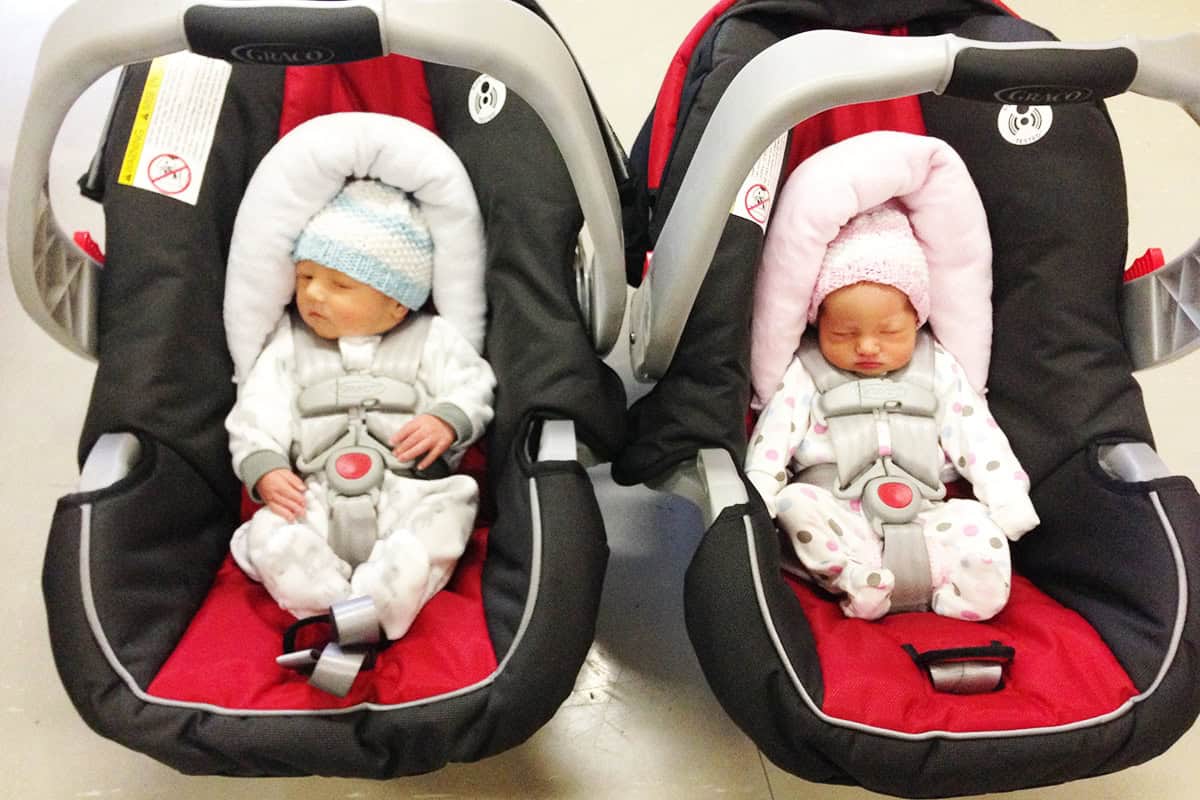
A good rule of thumb is to dress your baby the same way you will be dressing for the weather. If it’s cold outside, make sure they are sufficiently covered while not bundling them up too much.
A baby’s body is extremely vulnerable after delivery and they need time to acclimate to the outside world.
Is your going home outfit completely adorable but not weather-appropriate? Make sure to take lots of pictures before you leave the hospital!
Getting Home: The Carseat
Time to head home!
Before you even pack a hospital bag, you should get your hands on an infant car seat and ensure it is installed safely for your little one’s journey home.
Hospitals will require that you have an appropriate car seat and many will watch you strap in your infant before you leave to make sure you know how to use it properly.
So if you didn’t have time to figure out the car seat before your baby was born, take some time in the hospital to practice how to use it.
This will ensure that your baby gets home safe and sound!
Breastfeeding or Formula Feeding
As I mentioned before, you probably made the decision to breastfeed or formula feed before your little one was born and, barring any changes in plan, you will likely continue the method you chose when you get home.
No matter what way you choose to feed your baby, here are some tips you can follow to ensure success:
Breastfeeding Tips
As natural as breastfeeding is, actually doing it doesn’t always come naturally to brand new moms.
If you are struggling to breastfeed your little one, here are some tips:
- Try different positions
- Be patient with latching (it can take some time to get right)
- Feed on demand (this will help keep your milk supply up)
- Avoid soothers in the beginning since this can cause “nipple confusion”.
- Take care of your breasts – keep them dry after feeding and use nipple cream to prevent cracking.
Also, never hesitate to contact a local lactation consultant to help you out!
Formula Feeding Tips
When you formula feed your baby, it can be harder to determine when your little one is hungry (since you don’t have let-down or engorged breasts as indicators).
So it’s important to learn your baby’s cues for when they are hungry.
As a general guideline, newborns eat 1-3 oz. every 2-3 hours with the amount increasing and frequency decreases around two months.
Otherwise, here are some tips to help you out with formula feeding your little one:
- Start with a slow-flow nipple. This will help mimic the flow of breastmilk
- Find a brand of formula and baby bottle that works for your baby and stick with them.
- Have a bottle station that includes enough bottles to last the day, formula and a bottle warmer (or however you choose to warm the bottles).
- Give your little one burping breaks during feeding.
You should also be prepared to carry bottles with you since babies will require feeding on the go.
Just keep in mind that prepared formula can only stay out for so long, so pack up some formula powder in your diaper bag.
Head-to-Toe Physical Care
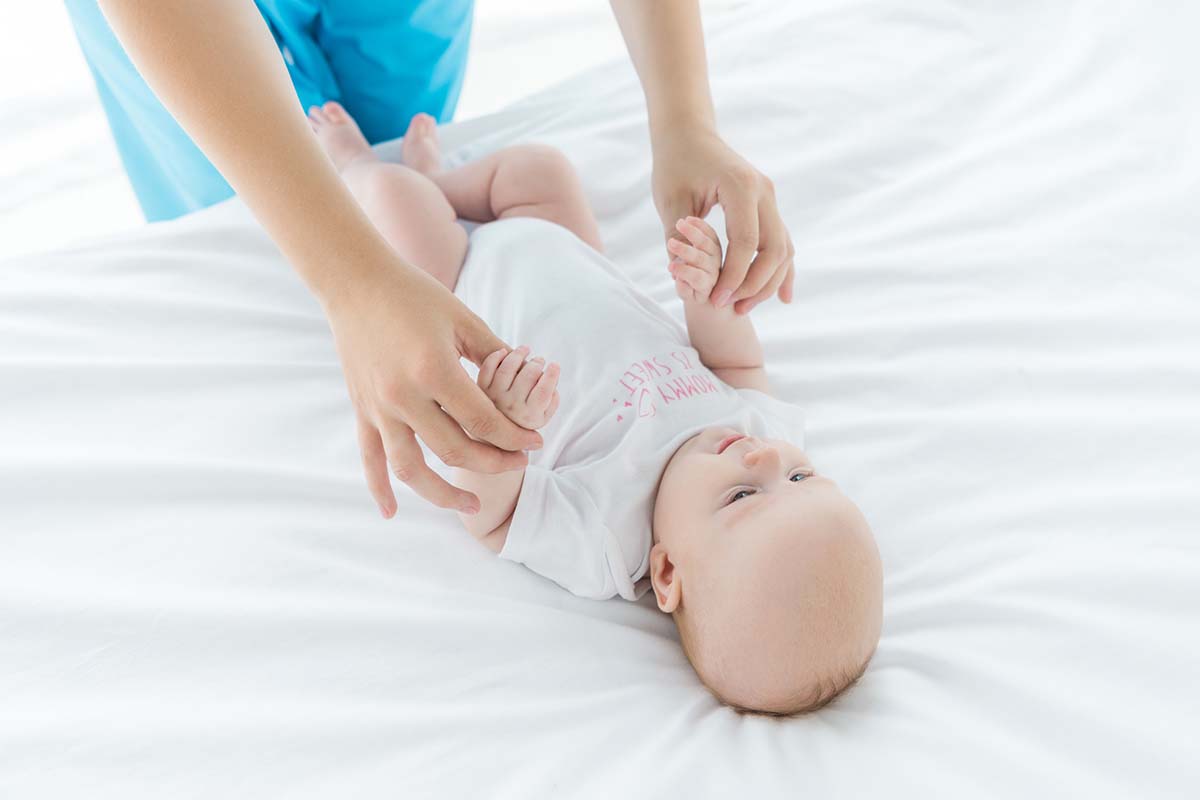
Newborns are pretty resilient when it comes to existing in the outside world so there’s no need to keep them in a bubble!
However, they still require a lot of physical care to remain happy and healthy.
So let’s look at how to take good care of your baby from head to toe:
Head and Scalp
Many brand new moms know that a newborn’s head and neck are extremely fragile and must be handled with care.
As far as the scalp goes, many newborns develop a condition called “cradle cap” which causes crusty or oily scaly patches to form on a baby’s scalp.
Don’t worry! This condition is not painful or itchy.
Cradle cap will disappear in a few months but you can help reduce its appearance by washing your baby’s hair with a little bit of almond oil and gently brushing away the scales with a soft baby hairbrush or toothbrush.
Face
Your baby’s face is going to be very sensitive and delicate, so it’s common to see something called “newborn acne” on your little one’s skin. Keeping your baby’s face clean and dry will help prevent and alleviate this.
Babies can also have weeping eyes caused by blocked tear ducts which you can help clear up by keeping your little one’s eyes and eyelids clean with warm water and a soft cloth.
As far as their little nose goes, their nasal passages can fill with mucus and cause blockages.
You can gently unclog their nostrils with a nasal bulb syringe.
Belly
You’ll probably get instructions at the hospital on how to take care of your baby’s umbilical cord area.
The dried little leftover nub should fall off in about 2-3 days but it’s still important to keep the area clean, dry and ventilated.
Dress your little one looser fitting clothes so the material does not rub against the stump.
If the area begins to look infected, you can squirt a little breastmilk on it or simply keep it clean, dry and exposed.
Do not place your baby in a bath until the infection has cleared and the cord has fallen off.
Bum
Because your little one will be wearing a diaper almost 24-7, it’s common for rashes to develop due to excess moisture on their sensitive skin.
Changing your baby’s diaper regularly, as well as giving them bare-bum time, will help to keep the area clean and dry.
When you do change their diaper, wash the area with warm water and dry thoroughly.
Try to avoid wipes with too many additives since they may irritate the skin.
If your little one does develop a diaper rash, use a rash cream to protect the skin from moisture while it heals.
Nails
Even though a newborn’s nails are soft and bendy, they can still cause scratches on their skin.
Many newborns will instinctively put their hands to their faces due to their newborn startle reflex.
You can use baby nail clippers to keep the nails short, clipping after bathtime when the nails are particularly soft or when they are sleeping and one the wiser.
Some brand new moms will put scratch mittens or even socks on their baby’s hands to prevent scratching.
Sleeping and Crying
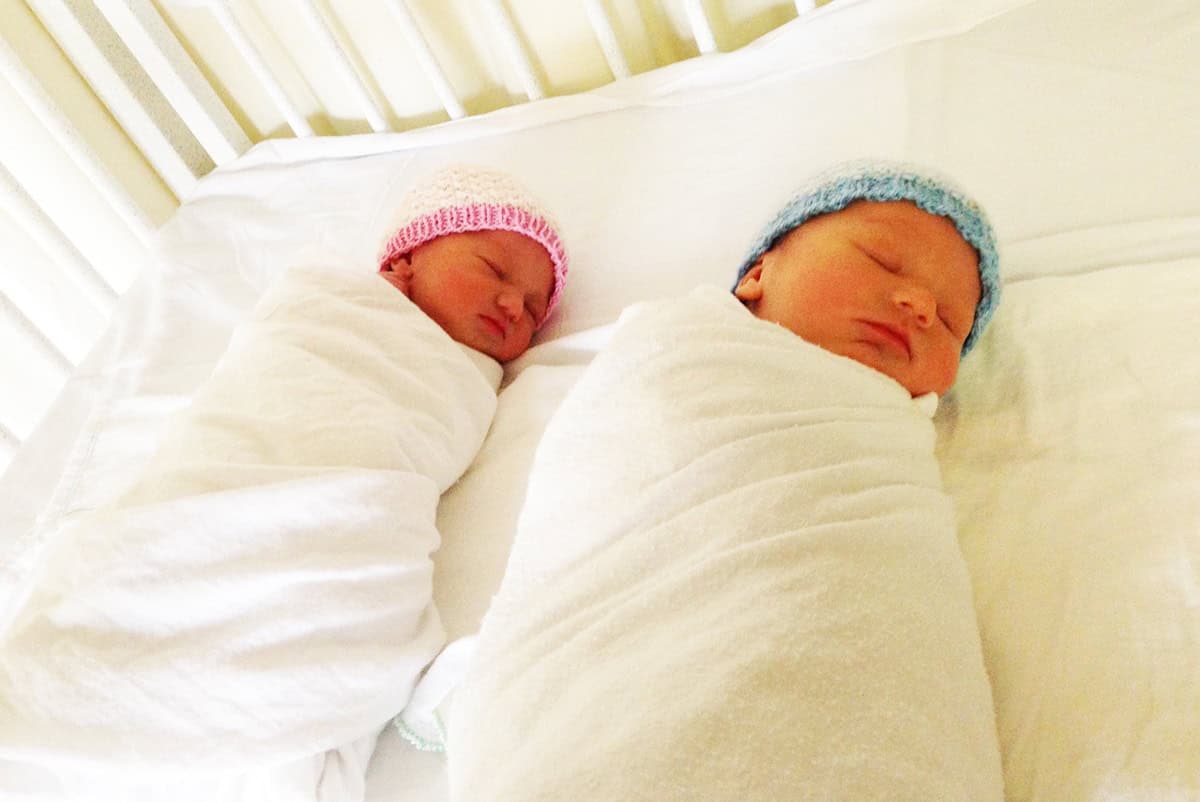
If there are two things babies do well, it’s sleeping and crying!
Sleep and Sleeping Arrangements
Sleep takes up a huge chunk of a newborn’s early life – their little bodies are so busy growing and developing!
While every newborn is unique, they typically require around 14-17 hours of sleep over a 24 hour period.
But don’t get your hopes up just yet!
These moments of sleep can occur in spurts throughout the day.
Newborns wake up every couple of hours to eat (yes, even through the night).
Trust me, you will adjust to this new sleep schedule – at least to the point where you don’t feel like a zombie every day!
As far as sleep arrangements for your little one go, the most important thing to remember is to create a safe sleeping environment.
Until your baby can roll themselves over, co-sleeping in the same bed is a definite no-no.
In fact, experts suggest not co-sleeping until your baby is at least 6 months old and even recommend waiting until they are 1 year old.
You can always place a crib, bassinet or co-sleeper that attaches to your bed in your room to make nighttime feedings easier.
This is what I did. I had their bassinet at bed height right next to me and it was easy to sleep through the night with them at arms length away.
When setting up a bed for your little one, ensure there are no pillows, blankets or stuffies.
These items can lead to SIDS (Sudden Infant Death Syndrome).
If you’re concerned about your baby getting cold, dress them in heavy sleepers or use a loosely knit blanket placed at your baby’s chest and tucked under the bottom of the crib mattress.
Dealing with Crying
Crying is really their only form of communication.
While you may get some eye contact in the early days, and you’ll definitely start recognizing sleep and hunger cues, crying is the only way they can tell you that something is wrong.
Did you know that babies will cry and fuss on average for almost 3 hours a day?
And newborns, in particular, will cry the most around 6-8 weeks.
Hearing your little one cry can be distressing but remember that these periods will pass and, more often than not, your little one is perfectly okay – they’re just tired or hungry or simply uncomfortable.
In order to deal with your newborn’s crying, start a process of elimination:
- Are they hungry? When did they last eat?
- Is their diaper soiled?
- Is it time for a nap?
- Are they too hot or too cold?
- Do they need a snuggle?
- Do they need to move around?
If you’ve tried everything, and nothing seems to soothe your crying newborn, it’s okay to lay them down safely and let them cry for a few moments.
Trust me, your sanity will thank you for taking a couple of minutes to yourself!
Warning Signs and Concerns: When to See the Doctor
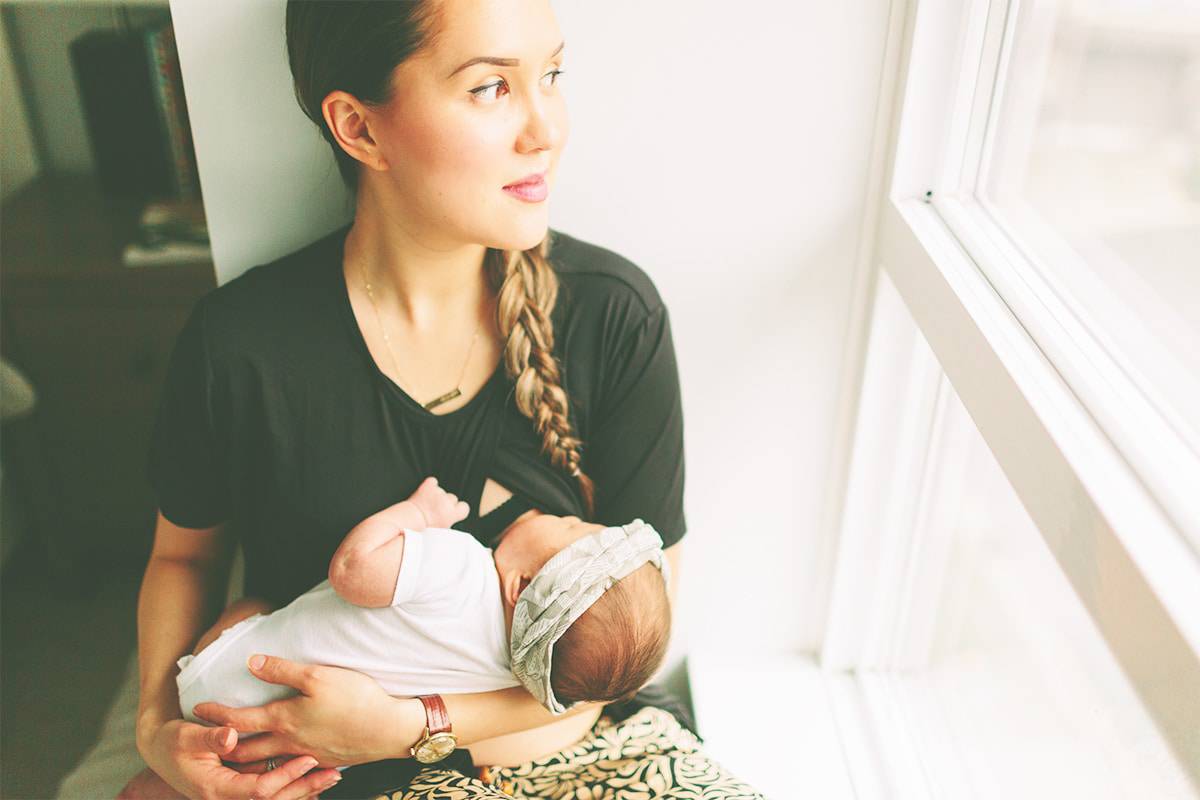
Now that you have some solid tips for taking care of your baby under your belt, along with your mothering instincts, it’s time to look at when exactly you should take your newborn to the doctor.
The first thing you should consider, however, is your baby’s routine.
Once you get used to how often your baby eats and sleeps, as well as their behaviors, you’ll get a better sense of when something is wrong.
Seek the advice of your doctor if your baby:
- Has a cough
- Has yellowish skin and eyes
- Is vomiting
- Is not having regular bowel movements or looser stools than usual
- Is crying more than normal and cannot be consoled
- Has a rash that is not getting better with treatment
- Has ear drainage
These are typically not emergencies but should be discussed with your doctor as soon as possible. Otherwise, you should be contacting your doctor immediately for the following:
- Temperatures above 100.4°F (38°C)
- Temperatures below 97.8°F (36.5°C)
- Any breathing issues (difficulty breathing or fast breathing)
- Blue lips, nose or fingernails (a sign of not getting enough oxygen)
- Limpness
- Signs of dehydration (wetting less than 6 diapers in 24 hours)
- Seizures
- Blood in stool, urine or vomit
- Injuries, especially to the head
In any situation where you feel something isn’t right, don’t hesitate to seek medical advice or help.
You know your baby better than anyone, so trust your instincts.
Mama Self-Care
A huge part of taking good care of your baby as a brand new mom is to take care of yourself as well!
Self-care may be the last thing on your mind when caring for a newborn but doing so doesn’t have to be extravagant or take up a lot of your time.
You can start taking care of yourself by ensuring you are getting enough sleep and eating nutritious foods.
Light exercise can also help you feel good about yourself and help you feel more relaxed and at ease.
I relied heavily on stroller walks to help me get fit.
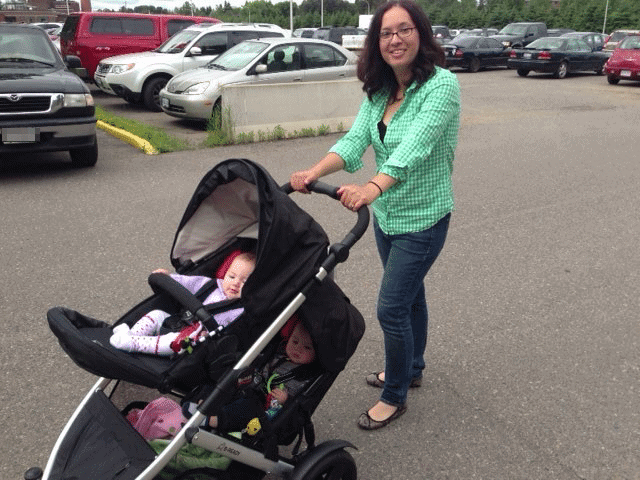
Whenever you can, set aside some time for yourself to do activities that you enjoy, such as a hobby, a warm bath or even just to have a moment of quiet.
Don’t be scared to ask for help!
There’s nothing wrong with reaching out to friends and family members to watch your little one so you can take some time to take care of yourself.
A happy mama makes for a happy baby!
You Got This, Mama!
Being a brand new mom can be scary, but you’ll be surprised how naturally you fit into the role!
Once you get to know your baby and get used to their routines, you’ll find yourself slipping back into a life of comfort – and now you have a little one to enjoy it with!
Now it’s your turn –
What is one invaluable piece of advice you learned as a brand new mom?
Share your thoughts in the comments!




Leave a Reply